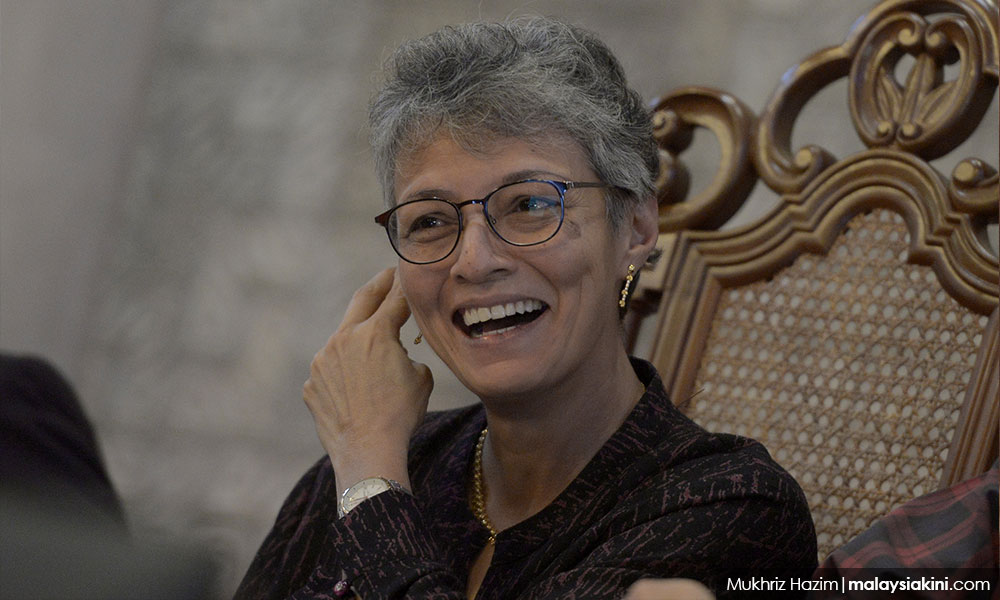The quality of education in Malaysian universities has been an issue of serious concern over the last two decades. Public interest in the issue was reignited in early 2021 by a comment made by Arshad Ayub, a highly respected educator and the first director of Institut Teknologi Mara (now Universiti Teknologi Mara), that more than 2,500 of Malaysian professors have still not attained the desired quality standards required of the academic profession.
Most recently, the awarding of 398 PhDs by a public university has raised concerns about the quality of PhD qualifications – traditionally awarded to the most rigorous and knowledge-enhancing work in a particular discipline.
To quote Sharifah Munirah Alatas, an outspoken academic: “In Malaysia, we produce graduates by the container load, and this includes PhDs. The more the merrier, regardless of quality.” In this regard, a close friend of mine cheekily commented, “Now almost everyone can have a PhD.” Another concerned local academic, Teh Yik Koon, has remarked that “our higher education system is on a downward spiral.”
They represent wider concerns that have been repeatedly raised by several quarters regarding the competency of our academics in their subjects; quality of teaching and learning in our universities; publication of articles by academics in predatory journals; the unethical practice of “riding” on articles written by other academics to meet the publication standards required for promotions; and the culture of mediocrity and apple-polishing which has evidently crept insidiously into our universities.
Hence, this article seeks to provide additional personal insights as to whether Malaysian higher education has been compromised by focusing on the following questions:
Has the quality and standards of Malaysian universities been deteriorating over the last few decades? Are our academics hired based upon academic merit and other required competencies or on ethnic-based criterion? Are our universities truly concerned about the quality of PhD theses or has quality been sacrificed for quantity in chasing after key performance indicators? Do examination questions adequately test critical thinking skills of students? How competent are our academics to ensure quality teaching and learning?
Based upon literature review and my interactions with hundreds of academics through my numerous workshops related to effective university teaching, academic leadership and graduate employability, the quality of education in our universities is not something to shout about. The sad truth is that, particularly in the case of public universities, we have sacrificed excellence for mediocrity, meritocracy for an overdose of social reengineering, and quality of graduates for quantity of graduates.
One reason the academic standards of public universities have declined over the years is due to ethnic-based quotas and political interference in the management of universities. In the words of Hena Mukherjee and Poh Kam Wong, two academicians and consultants for the World Bank, “There has been widespread recognition that the implementation of affirmative action policies in Malaysia has hurt the higher education system, sapping Malaysia's economic competitiveness and driving some (mainly Chinese and Indians) to more meritocratic countries, such as Singapore.” I do not think the situation has gotten any better since Mukherjee and Poh conducted their study.
Unwritten policy
Currently, all the vice-chancellors and a vast majority of the top management and deans in our public universities are drawn from one ethnic group, no thanks to overzealous and misguided affirmative action. While many of them could be eminently qualified, one wonders if there are no academics worthy of these positions from our nation’s diverse ethnic groups.
Or is there an unwritten policy of appointing only “orang kita” to these positions, without any importance attached to meritocracy and the quality of graduates being produced? Surely, key leadership positions in the universities where policies and standards of education, as well as the hiring of teaching faculty, are determined should be guided by merit more than anything else.
Thus, it comes as no surprise for Syed Farid Alatas, Malaysian professor of sociology at the National University of Singapore (NUS), to comment that many Malaysian academics lack the intellectual rigour to publish articles in highly reputable international scientific journals or with renowned university presses. For the record, based upon data provided by the Social Sciences Citation Index for the years 2000-2018, Malaysian scholars in the arts and humanities published only 11,401 articles, lagging behind Taiwan (45,875), South Korea (44,633) and Singapore (23,193).

The troubling state of affairs in our universities is perhaps best summarised by Sharifah Munirah Alatas: “There are a handful of scholars engaged in relevant, cutting-edge research in a few of our universities, mostly in the sciences. But these are a minority compared to the overwhelming majority who are deadwood and seat warmers. And research standards in the social sciences are extremely pathetic.”
Based upon my interactions with hundreds of academics, the majority of them lack adequate pedagogical knowledge and competence in teaching. It is not uncommon for academics to rely entirely on the PowerPoint slides provided by publishers to teach students. To make matters worse, instructional strategies generally promote surface learning (rote learning with students treated as passive learners).
As an example, virtually all of the examination questions for the Quality Management Course (MPA degree) at one of Malaysia's leading public universities were based on lower-order thinking skills with questions, inter alia, dealing with definitions of quality and organisational culture; basic concepts of total quality management; ways of changing organisational culture; and benefits of implementing ISO9000 in organisations.
I was also shocked by the poor understanding of critical thinking among our academics, including professors. Not one out of more than 200 lecturers who have attended my workshops could provide me with a proper definition of critical thinking. How then can we inculcate critical thinking in our graduates when a significant number of academic staff themselves have a poor understanding of it?
Take heed that the World Economic Forum, in their most recent ‘Future of Jobs’ report has identified critical thinking as one of the top five most important, in-demand job skills for the current and future economy.
Factual errors
Numerous examples abound about the lack of subject mastery among some of our academics. One such example is the hundreds of factual errors littering our school history textbooks since 1989.
Another example reflective of substandard scholarly competence is that the marking scheme for a Personal Development Course examination of a local public university (2014) had incorrect answers for about 20 percent of the questions, besides several grammatical errors.
Most shockingly, the lecturers who were using my book, ‘Enhancing Personal Quality: Empowering Yourself to Attain Peak Performance at Work’, could not provide me the correct answers to basic questions such as the meaning and three components of “personal quality”. I was dumbfounded and felt sorry for the students who were being taught by such academics.
Further, it is not uncommon for some of our academics to demonstrate lack of meticulousness in their own writing. That being the case one wonders the quality of supervision provided to their PhD candidates. Two glaring examples should suffice.
First, a local history professor writing in an international journal (2014) about the 1915 Singapore Mutiny stated ridiculously that “... sepoy Ismail Khan fired the first shot killing the truck’s crew as well as those of the other remaining trucks.” How can a single shot kill a number of people? The truth is (based on primary sources) Ismail Khan’s shot did not even kill a single person.
Second, several history professors in their published books and articles in various journals had been writing incorrectly the name of the British company that once governed Sabah as the British North Borneo Chartered Company (actually British North Borneo Company) and its date of establishment as 1881 (actually 1882).
Regarding the quality of PhD theses, allow me to share my personal experiences. Several years ago, whilst preparing for a workshop aimed at empowering local PhD candidates to write high-quality theses, I went through a number of PhD theses from universities based in Malaysia.
Apart from flaws in methodology and formatting, I was extremely shocked by numerous factual and glaring grammatical, punctuation and spelling errors in them. For example, one particular thesis (2015) had several factual errors, including Malaysia attaining independence in 1957 and the duration of Japanese occupation in Malaya being 1941 to 1945 (actually 1942 to 1945).

The following example (2015) is representative of the poor command of English by some local PhD holders: “Author has started her Bachelor’s degree in (name of local public university withheld) at 2001 and continued her Master’s degree at 2006 at the same Universiti. Before pursuing her PhD in 2010, the author has worked as a lecturer in Private University for 7 years. Being expert in Human Resource Development area, author has also developed various modules within the field specifically for part time students in private universities.”
A 2012 PhD thesis from another Malaysian university was littered with meaningless sentences such as “Organisational culture is seen as an important factor builds an organisation (Martins and Terblanche, 2003)”; “This study indicates that organisational members perceive their managers/leaders who demonstrate transformational leadership style”; and “The organisational leaders would have discussed the necessity to perform change through his or her teams or followers in multiple ways since it is the art of communication.”
A few PhD supervisors whom I spoke to surprisingly downplayed the importance of good writing. Perhaps they are not aware that “accuracy in grammar and punctuation forms part of a well-written thesis” as rightly asserted by Paul Oliver in his book, ‘Writing Your Thesis’. In a similar vein, Andrew J Romig of Harvard University states: “Even the most brilliant ideas can become obscured by typos, incorrect citation styles, and bad grammar.” Maggie Biroscak sums up well the importance of good writing: “Sloppy writing makes people wonder what else you’re messing up on.”
Apple-polishing culture
Towards enhancing the quality of Malaysian higher education, we must practise meritocracy in hiring and promoting Malaysian academics, irrespective of their ethnic or cultural origin. We must never allow mediocrity and the apple-polishing culture, which are detrimental to the future economic wellbeing of our nation, to reign in our public universities.
Additionally, the Malaysian Qualifications Agency (MQA) could commission independent studies or audits to assess the quality of PhD theses and PhD supervision in our local universities, besides ascertaining how many of these doctoral theses actually contribute to new knowledge in their field.
I have spoken at length on the quality of education in public universities since a great deal of my training involves this group. That does not mean all is well with the quality of education in private universities which over the last two decades have rapidly expanded to play a major role in the provision of tertiary education.
It is an undeniable fact that some private universities, driven solely by the profit motive, have compromised entry requirements for students and exerted pressure on academics to pass underperforming and below-the-mark students. Indeed, whilst teaching an MBA module entitled “Management of Organisational Change” at a local private university, I was asked to pass several students who had failed the examination. I flatly refused and stopped teaching at the university.
I trust that my candid views will be viewed positively and lead to a healthy debate regarding measures to be taken to enhance the quality of teaching and learning in our universities. - Mkini
RANJIT SINGH MALHI is a widely-quoted authority on self-leadership, peak performance and soft skills. He has written six books on personal excellence, soft skills and management, three of which have been translated into Arabic.
The views expressed here are those of the author/contributor and do not necessarily represent the views of MMKtT.




No comments:
Post a Comment
Note: Only a member of this blog may post a comment.